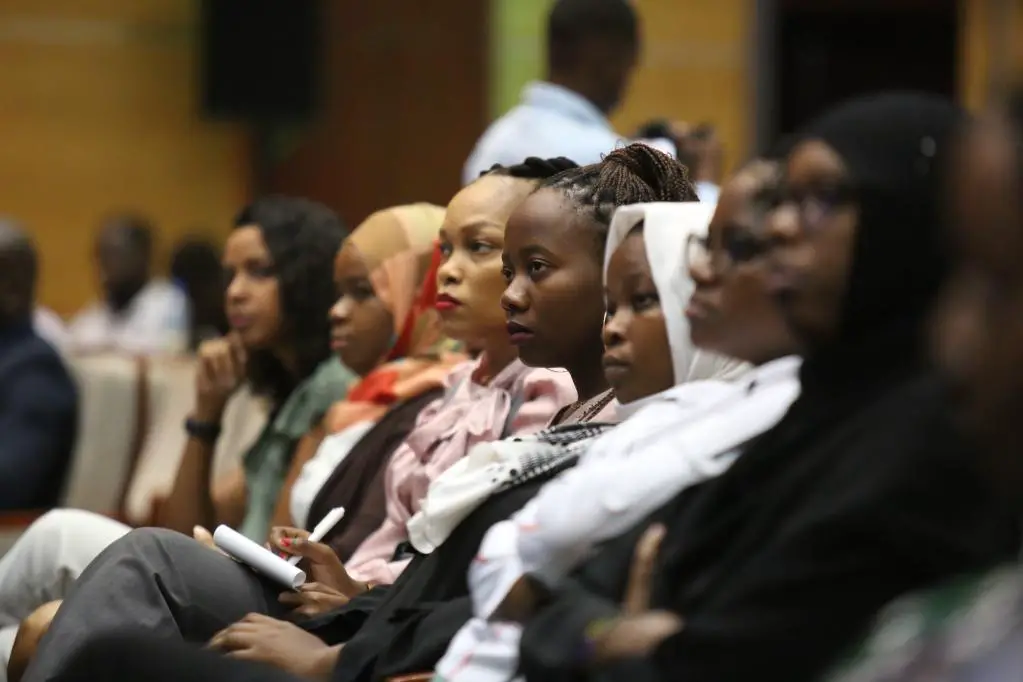- Tanzania government to place more emphasis on fostering inclusive technology, innovation, and educational opportunities to achieve gender equality
- Digital financial services in Tanzania have been strengthened, making them accessible to women in both urban and rural areas
- The Ministry of Education, Science and Technology integrated ICT into teaching and learning, resulting in the training of 1,347 trainers in 2020, including 893 men and 454 women
The Government of Tanzania is committed to empowering women and girls to participate fully in the digital world in order to achieve gender equality in development.
As Tanzania joined the rest of the world in celebrating International Women’s Day on Wednesday 8 August 2023, Dr. Dorothy Gwajima, Minister for Community Development, Gender, Women, and Special Groups, stated that the government,working with others stakeholders, will place more emphasis on fostering inclusive technology, innovation, and educational opportunities to achieve gender equality.
In accordance with this year’s theme, “Innovation and Technological Change: An Accelerator for Achieving Gender Equality,” the minister said that the government will continue to adopt a number of measures to make it possible for more women to take advantage of digital technology.
According to Dr. Gwajima, as of February of this year, 17 regions had already established forums and the provision of soft loans to women entrepreneurs has significantly increased. In 2015/16, shs 3.39 billion Tanzanian shillings were given to 2,225 groups, while in 2021/22, shs 111.03 billion Tanzanian shillings were distributed to 34,502 groups, benefiting a total of 996,087 women.
Between 2018/2019 and April 30th of last year, a total of 21,546 women entrepreneurs from 26 regions in Tanzania have benefitted from soft loans totaling shs 78.6 billion Tanzanian shillings. These loans were provided by Tanzania Postal Bank, currently known as Tanzania Commercial Bank.
Dr. Gwajima also pointed out that digital financial services in Tanzania have been strengthened, making them accessible to women in both urban and rural areas. Nearly all adults, including women, are aware of digital financial services, with 99% having knowledge of these services through their mobile phones.
Role of institutions Promoting Digital Finance
While 45% of Tanzanian women use these services effectively, there is still room for improvement.
The Commission for Science and Technology (COSTECH) received recognition for their role in promoting digital finance.
Moreover, the government has been utilizing various institutions such as the Small Industries Development Organisation (SIDO), Tanzania Bureau of Standards (TBS), and Tanzania Medicines and Medical Devices Authority (TMDA) to empower women in technology, innovation, and market standards.
Through the Empowerment through Skills Program (ESP), working with Folk Development Colleges (FDCs) and Community Based Organisations (CBOs) in 12 regions, women and adolescent girls have gained access to alternative education, employment, and entrepreneurship opportunities.
STEM for African Girls
In addition, the government is prioritizing the education of girls in Science, Technology, Engineering, and Mathematics (STEM), with the construction of 26 girls’ secondary schools across the country.
As per to Dr. Gwajima, the Ministry of Education, Science and Technology integrated ICT into teaching and learning, resulting in the training of 1,347 trainers in 2020, including 893 men and 454 women. She also stated that the government, in collaboration with stakeholders, aims to not only improve women’s economic empowerment but also their digital technology skills.
Moreover, the Minister emphasized that the government will address barriers preventing women from fully utilizing digital technology. Dr. Gwajima referred to the Commission on the Status of Women (CSW67), which highlighted that women in low-income countries face challenges in accessing and using digital technology.
For instance, although 76% of people in these countries own mobile phones with internet access, only 25% of them utilize the service, and women constitute a minority.
Recent statistics indicate that in 2022, 63% of women globally used the internet compared to 69% of men, and only 12% of women owned mobile phones.
The CSW67 identified various factors that hinder women from using the internet, including the cost of technology, lack of literacy, privacy and safety concerns, limited content, unstable power supply, and cultural traditions.
Nonetheless, the government remains committed to implementing policies that promote digital inclusion and empower women.
TPSF Chairperson, Angelina Ngalula, emphasised the catalytic role that women play in achieving economic, environmental and social changes required for sustainable development.
She noted that women entrepreneurs in Tanzania face numerous challenges, including limited access to finance, markets, information and participation in the formal economy.
However, she believes that innovation and technology can provide solutions to these challenges by providing access to new markets, financing and information.
Read: Empowering women farmers to access financing
